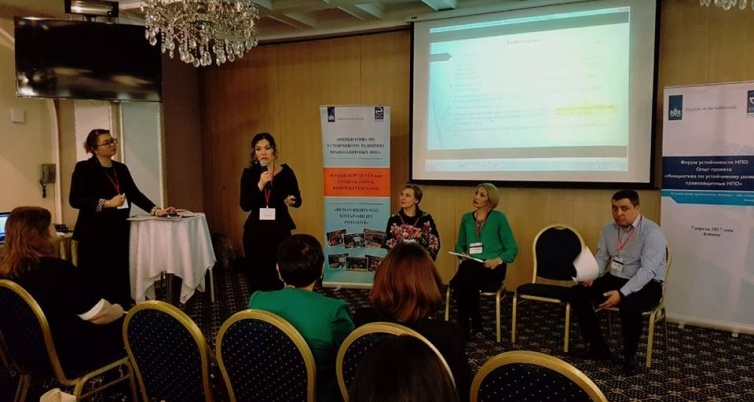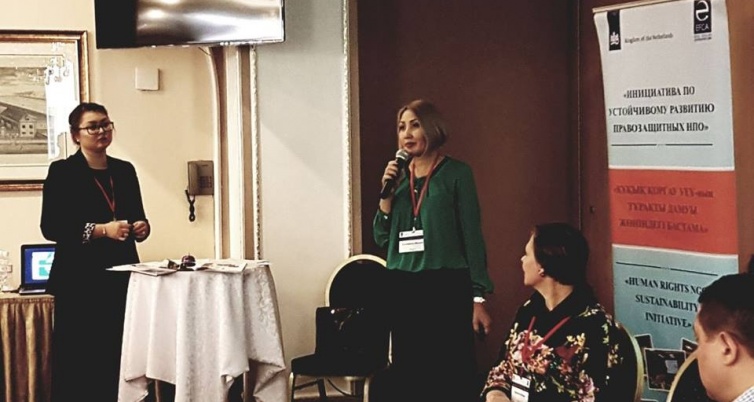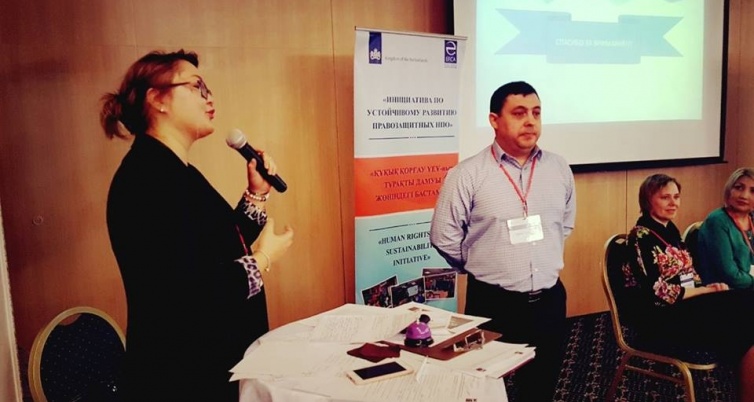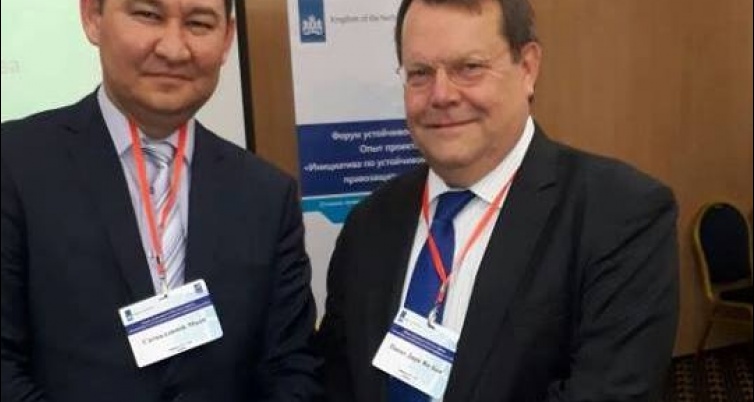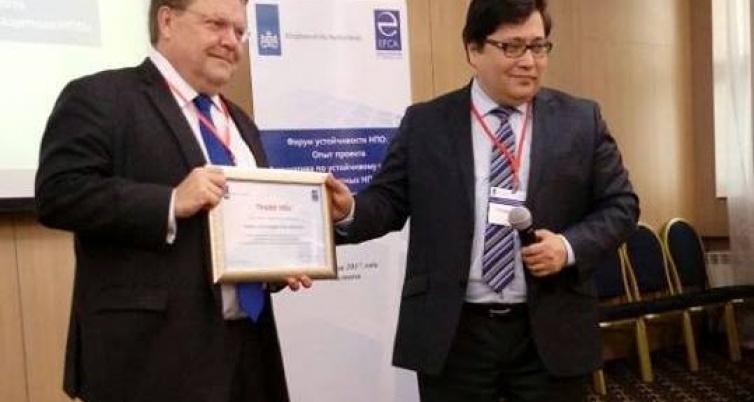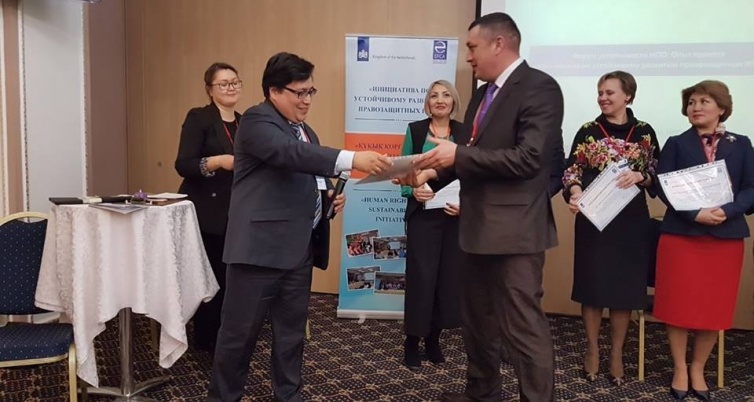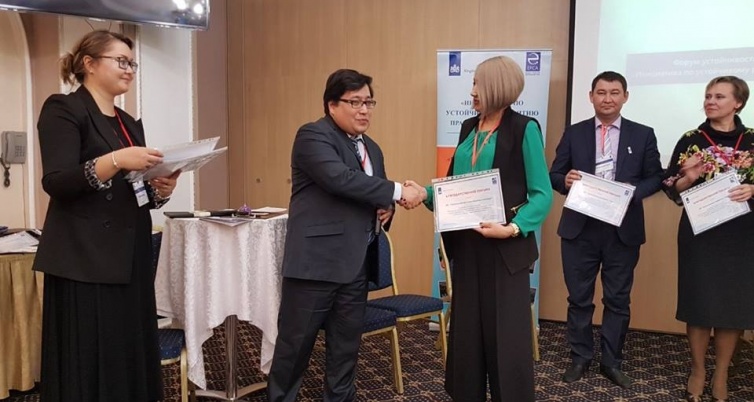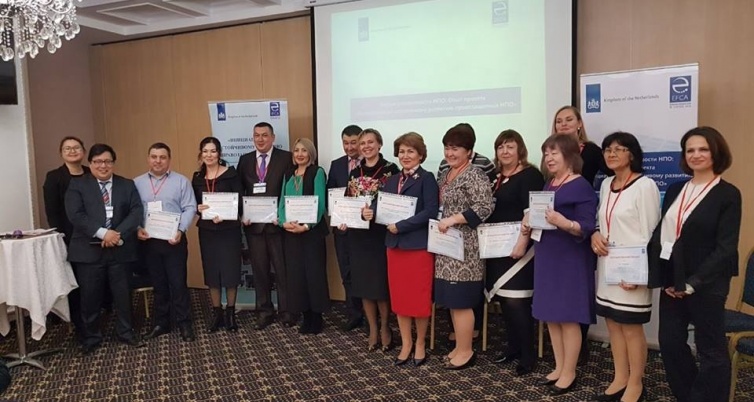Подпишитесь на наши новости:
News
другие News
European Union supports more active role of women and youth in decision-making in Kazakhstan
Qolda emergency assistance project
Qolda emergency assistance project
July 10, 2017
NGO Sustainability Forum
Astana, Kazakhstan - Today, on April 7, Astana hosts the NGO Sustainability Forum: The Experience of the NGO Sustainable Development Initiative organized by the Eurasia Foundation for Central Asia (EFCA) with the financial support of the Embassy of the Kingdom of the Netherlands in Kazakhstan.
The purpose of the event is to study the opinions and experience of non-governmental organizations, experts, sponsor and donor organizations on issues of sustainability of the non-governmental sector and to discuss modern methods of achieving sustainability as well as to offer recommendations to the participants.
The event was opened by the Ambassador of the Kingdom of the Netherlands, Mr. Dirk Jan Kop, who was awarded a thank you letter for his contribution to the development of NGO sustainability in Kazakhstan and for the support of "Initiative for the Sustainable Development of Human Rights NGOs." project.
The organizers of the forum presented the methodology and achievements of the project "Initiative for the Sustainable Development of Human Rights NGOs" and the project participants shared their success stories.
The forum participants also discussed following issues related to the sustainability of the sector: the unique role and responsibility of the non-governmental sector in the society; how effectively Kazakhstani NGOs fulfill their role in society, and what prevents them from achieving better results.
The issues of introducing business approaches to NGOs (effectiveness, optimization, marketing, planning and evaluation system, efficiency, KPI, strategic planning) were raised. Participants shared their strategies for achieving financial sustainability. In particular, they discussed pros and cons of the social entrepreneurship as a model of financial sustainability for NGOs.
"We came to the fact that we are absolutely independent of any external sources of financing," says Gennady Frank, director of the Public Association "West Kazakhstan Union of Graduates of Orphanages " Nur ", social enterprise "Shanyrak".
In addition, experts and professionals in the field of organizational development, sustainability, and social entrepreneurship shared their experience in such matters as electronic competencies for NGO development, marketing approach in personnel management, people's funding for social projects, opportunities and challenges for social entrepreneurship. Donor and sponsor organizations described how they see a mutually beneficial partnership with NGOs and what are the guidelines for choosing partners.
"The main criticism of non-governmental organizations lies in their dependence on funding from sponsors and donors who pursue their own goals that are not always based on the needs of society. In this regard, the level of confidence in NGOs is declining, both on the part of the population and on the part of the state. At the same time, the possibilities for obtaining grant funding are decreasing every year. This jeopardizes the very existence of the non-governmental sector. But any crisis forces us to look for new solutions, to reach a new level of development," notes Irina Naydenova, an expert on NGOs sustainability. - The participants of the EFCA project and the Embassy of the Kingdom of the Netherlands realized their problems and made significant steps in achieving sustainability of their organizations by creating social enterprises, developing long-term programs and strategic plans, building new partnerships".




